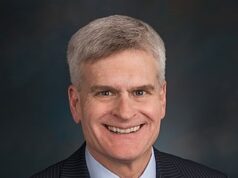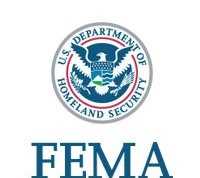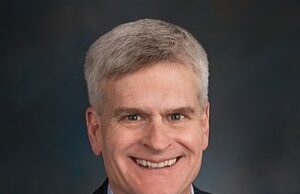Norton Blasts Meadows, Palmer for Filing Anti-Home-Rule Riders to Block D.C.’s Individual Health Insurance Mandate, Voter-Passed Initiative to Eliminate Tipped Minimum Wage
WASHINGTON, D.C. – (RealEstateRama) — Congresswoman Eleanor Holmes Norton (D-DC) today blasted Representatives Mark Meadows (R-NC) and Gary Palmer (R-AL) for each filing two anti-democratic riders to the fiscal year 2019 District of Columbia Appropriations bill to block two local D.C. bills. Meadows and Palmer filed redundant amendments to prohibit D.C. from using its local funds to carry out the recent voter-passed Initiative 77, which would eliminate the tipped minimum wage, and to prohibit D.C. from using its local funds to carry out the Health Insurance Requirement Amendment Act of 2018, which requires D.C. residents to have health insurance and is modeled on the Affordable Care Act’s individual mandate. The amendments were filed at the House Rules Committee, which is expected to consider the fiscal year 2019 Financial Services and General Government Appropriations bill, which contains D.C.’s appropriations bill, next week. Meadows, chairman of the far-right House Freedom Caucus, and Palmer are frequent abusers of D.C. home rule. Three states (Massachusetts, New Jersey and Vermont) have passed individual mandate laws similar to the District’s. The summaries of Meadow’s amendments falsely claim to only prohibit “federal funds” from being used, when the texts of the amendments would prohibit both federal and local D.C. funds from being used. Representative Mark Walker (R-NC) is a cosponsor of Palmer’s individual mandate rider and Representative Mark Sanford (R-SC) is a cosponsor of Palmer’s Initiative 77 rider.

“Representatives Meadows and Palmer are up to their old tricks again by abusing congressional authority over the District to try to undemocratically impose their views on our residents,” Norton said. “Meadows and Palmer are apparently not satisfied with effectively stripping the individual mandate from the Affordable Care Act nationally but now want to block D.C. from using its own local funds to protect its local residents from becoming uninsured, as three states have also done. As to Initiative 77 on tipped wages, that local issue should be decided solely by D.C., not unaccountable Members of Congress trying to interfere in the District’s local affairs. Meadows and Palmer have such a taste for violating D.C. home rule that they filed virtually identical amendments, piling on the insult to D.C. They can keep on trying, but we will keep on defeating them. I will be going to the Rules Committee to testify against these offensive riders and I ultimately intend to defeat them.”
Meadows is a frequent offender of D.C. home rule. The past two Congresses he has introduced a bill to force D.C. to spend local funds for vouchers for any student who chooses to attend private schools. He has led the effort in the House to repeal the referendum passed overwhelmingly by D.C. voters in 2013 that granted the District budget autonomy. Last Congress, he introduced a standalone bill, which passed the House, to repeal the budget autonomy referendum, the text of which has been included in the fiscal years 2017 and 2018 House-passed D.C. Appropriations bills. However, Norton has kept the referendum from being overturned. Last Congress, Meadows introduced a bill to interfere with and alter D.C.’s local occupational licensing laws and require the District to create a new legislative committee or subcommittee on occupational regulations, which Norton kept from moving forward. Last Congress, Meadows was one of the most vocal supporters of a House-passed disapproval resolution to nullify a local D.C. anti-discrimination law, the Reproductive Health Non-Discrimination Act, which Norton kept from becoming law. In the 113th Congress, he introduced a bill to redefine the District government as a federal agency and prohibit it from deducting union dues from employee paychecks.
Palmer has led the efforts in the House to block the Reproductive Health Non-Discrimination Act (RHNDA), which prohibits employers in D.C. from discriminating against employees, their spouses or their dependents based on their reproductive health decisions. He filed amendments to the fiscal year 2017 and 2018 D.C. Appropriations bills to prohibit D.C. from spending its local funds to carry out RHNDA.
Norton has filed amendments to strike all five riders currently in the fiscal year 2019 District of Columbia Appropriations bill: repealing the Local Budget Autonomy Act of 2012, prohibiting D.C. from spending its local funds on recreational marijuana commercialization, prohibiting D.C. from spending its local funds on abortions for low-income women, repealing the Death with Dignity Act (DWDA) and prohibit D.C. from spending its local funds to carry out RHNDA.
###

















